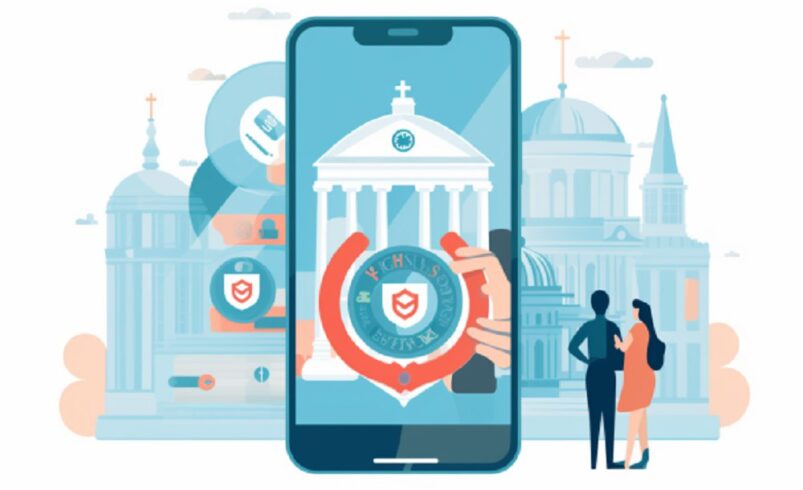What Is a Cryptocurrency Wallet?

A cryptocurrency wallet is any offline or online tool that functions to keep your crypto assets safe. It can be a USB Drive like Trezor or mobile applications like Trust Wallet, where you store your crypto portfolio, and most times, you need keywords to access them.
Modernized crypto wallets have drastically lowered the entry barrier to the crypto industry as they allow you to manage your crypto investment and transactions right on your mobile devices, including phones, laptops, PCs, etc. In this post, you will understand the various types of crypto wallets that exist, as well as how to keep your crypto investment safe.
Types Of Crypto Wallet
Cryptocurrency wallets can be grouped into different types using different parameters. For instance, in terms of custody, it is grouped into Custodial and Noncustodial crypto wallets; in terms of internet connection, crypto wallets are classified into hot wallets and cold wallets; and in terms of devices used, you can have software hardware or a paper wallet. Let’s briefly explain what each of these classifications stands for.
Custodial wallets:
this is a type of crypto wallet hosted by a third party, and your transaction keys are stored with the custody provider, which could be a firm offering institutional-level security systems that businesses utilize to store and protect their data. Most centralized crypto exchanges, such as Binance and Coinbase, offer custodial wallets to their users.
Non-custodial Wallets:
this is the direct opposite of custodial wallets in that the safety of your wallet is your responsibility as you alone know your private keys. A typical example of this wallet is the Trust Wallet. This wallet provides more privacy to investors as there is no third party, and you can recover lost passwords with your seed phrases.
Hot Wallets:
this crypto wallet requires an internet connection to function. It is otherwise called an Online-crypto wallet.
Cold Wallet:
is a wallet that can function without being connected to the internet. Otherwise known as an Offline crypto wallet.
Software Wallets:
As the name implies, these are applications you need to download and install on your desktop or mobile devices. You can easily manage your wallet using your mobile devices, be it Android or iOS. Also, it facilitates online payments as you can quickly scan QR codes or use near-field communications. Examples of these wallets are Mycelium, Electrum, or Trezor. Note that all software wallets are typical hot wallets, as you need an internet connection.
Hardware Wallets:
Of the types of wallets, hardware is the most common. It comes in the form of a USB Drive, which you can connect to your mobile device to access your crypto assets, where you can execute your transactions. Most hardware does not require passwords for transactions, making it difficult for jackets to crack. Common examples included Trezor and Ledger. Generally, hard wallets are cold wallets as they do not have an active connection until you plug them into your devices. Note that some hardware wallets use Bluetooth for connection.
Paper Wallets:
Paper wallets are the oldest and rarest type of crypto wallets. It requires you to write your keys down on paper, hence the name, paper wallet. However, this method has evolved into QR codes scanning on devices. In addition, this wallet gets easily damaged, hence, people seldom use it anymore. Nownthesles, it is also functional as other types, so far you keep it in good condition.
Crypto Wallet Security
Since inception, cryptocurrency has been a main target for financial criminals, hence, the need to keep your wallet safe. Keeping your crypto assets safe starts with whatever type of wallet you use because many malware disguises as a genuine crypto wallet to scam you. Hence, do your due diligence before using one
Non-Custodial Wallet
In addition, if you are using a self-custodial wallet, you need to keep your seed phrase safe. Seed phrases are a unique set of 12 or 24 mnemonics generated while registering your account. You can use this seed phrase to recover your account whenever you lose your password. Hence, it is vital to keep the seed phrase safe, as a third party can access your account through it.
Custodial Wallet
However, if you are using a custodial wallet, your password is kept by your service provider. However, the big deal is that many crypto custodial platforms get attacked by hackers, and in the process, they steal users’ funds, including yours. Also, whenever a crypto platform collapses, its customers suffer the brunt. Hence, be cautious of the crypto platform you register with. Ensure you go with tested and reliable ones.
DISCLAIMER: It's crucial we tell you that the content on this page is not meant to serve as, nor should it be construed as, advice in legal, tax, investment, financial, or any other professional context. You should only invest an amount that you are prepared to lose, and it's advisable to consult with an independent financial expert if you're uncertain. To obtain more information, we recommend examining the terms of service and exploring the assistance and support resources provided by the issuing or advertising entity. Our platform is dedicated to delivering accurate and unbiased reporting, but it's important to note that market circumstances can change rapidly. Also, be informed that some, though not all, articles on our site may be sponsored or paid content.













